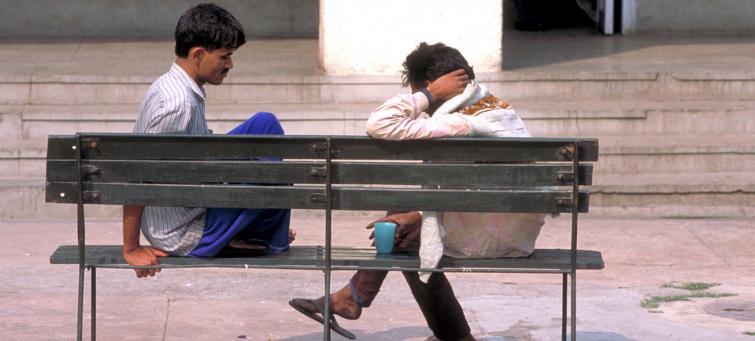
Move away from outdated ‘mad or bad’ approach to mental illness, urges independent UN expert
New York: States, civil society, psychiatric organizations and the World Health Organization (WHO) itself must change the way they address mental health challenges, a UN independent rights expert said, calling for a shift towards understanding the context behind mental distress.
While welcoming international recognition of mental health, Dainius PÅ«ras, UN Special Rapporteur on the right to physical and mental health, told the Human Rights Council on Monday that “much more is still needed”.
“The global mental health status quo should move away from the outdated ‘mad or bad’ approach which seeks to prevent behaviours deemed as ‘dangerous’ or provide treatment considered ‘medically necessary’ without consent,” he said.
PÅ«ras also warned against the exaggerated benefits of psychotropic medications, stressing that it has led to an overuse of medicalization and institutionalization.
“I appreciate the progress made to understand the role of psychotropic medications, but also recognize that there are no biological markers for mental health conditions,” he said. “Hence, the specific mechanisms by which psychotropic drugs might be effective, are simply unknown.”
Failures of the status quo
The UN envoy said the status quo in mental health care ignores the social, political or existential context that contributes to a high prevalence of sadness, anxiety, fear and other manifestations of mental distress.
And COVID-19 has only exacerbated the failures of the status quo.
“There is no simplified mechanistic solution to mental distress,” the Special Rapporteur said. “For the majority of mental health conditions, psychosocial and other social interventions are the essential option for treatment.”
Systemic obstacles - such as power irregularities in mental health care, the dominance of the biomedical standards and the biased use of knowledge – must be addressed by changes in laws, policies and practices.
Invest in rights-based support
Mr. PÅ«ras reiterated his call for mental health care action and investment to be redirected to rights-based supports; non-coercive alternatives that address the psychosocial determinants of health; and the development of practices that are non-violent, trauma-informed, community-led, healing and culturally sensitive.
“I’m calling once again for the ultimate elimination of segregated psychiatric institutions that reflect the historic legacy of social exclusion, disempowerment, stigma and discrimination”, concluded the Special Rapporteur.
Legalese
The Convention of the Rights of Persons with Disabilities should guide mental health policies and services, and discriminatory laws and practices should be abandoned.
Special Rapporteurs are appointed by the Geneva-based UN Human Rights Council to examine and report back on a specific human rights theme or a country situation. The positions are honorary and the experts are not UN staff, nor are they paid for their work.
Support Our Journalism
We cannot do without you.. your contribution supports unbiased journalism
IBNS is not driven by any ism- not wokeism, not racism, not skewed secularism, not hyper right-wing or left liberal ideals, nor by any hardline religious beliefs or hyper nationalism. We want to serve you good old objective news, as they are. We do not judge or preach. We let people decide for themselves. We only try to present factual and well-sourced news.







